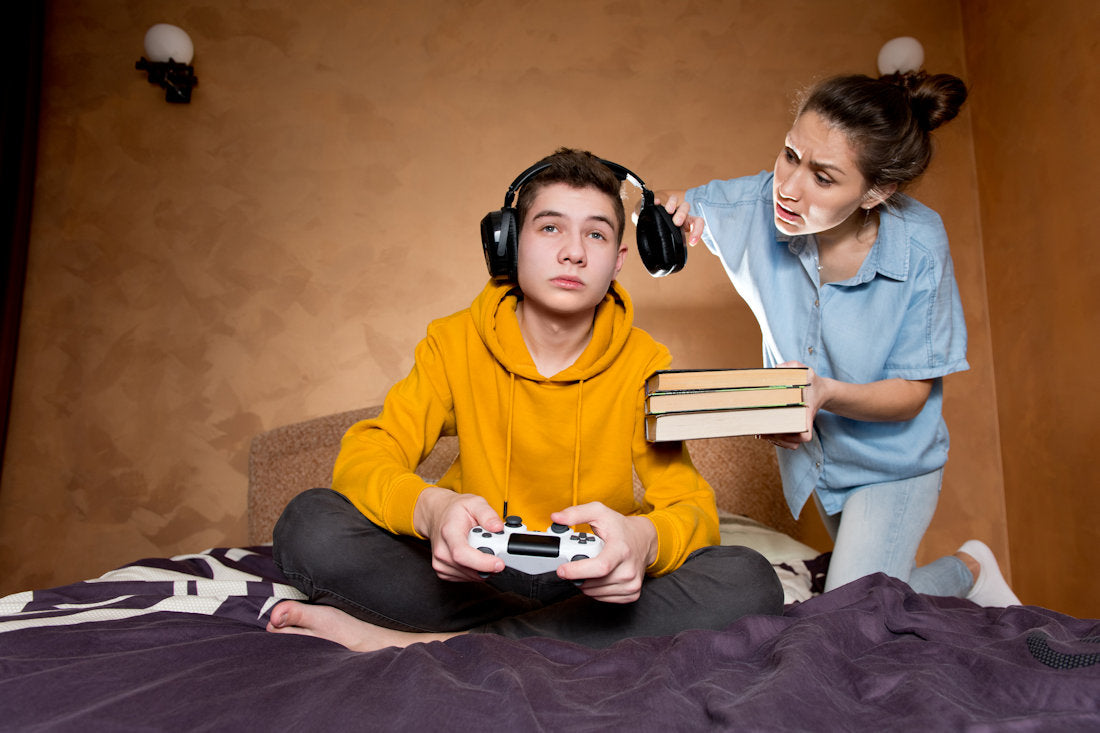
Web Junkies: Computer Addiction
Dr. Linda Hancock![]() I was watching a television documentary recently that highlighted computer addiction as one of the biggest problems that China is facing today. In 2008 China declared internet addition to be a clinical disorder, saying it is a top health threat to its teenagers. Several countries, including the United States, have now followed China's lead regarding the problems associated with what has been dubbed "electronic heroine".
I was watching a television documentary recently that highlighted computer addiction as one of the biggest problems that China is facing today. In 2008 China declared internet addition to be a clinical disorder, saying it is a top health threat to its teenagers. Several countries, including the United States, have now followed China's lead regarding the problems associated with what has been dubbed "electronic heroine".
Families who were interviewed for the documentary explained that their teen would spend hours and hours online while neglecting basics of life such a bathing. They avoided doing their schoolwork, interacting with family and were argumentative to the point that the parents didn't know what to do.
An inpatient center was established in a suburb of Beijing where these teens, who are compulsive about computers, are rehabilitated with therapy and a mix of military drills. Sometimes the parents have had to drug their child or lie to get them to the boot-camp-like facility. During their treatment program, which can last for three to four months, the teens are behind bars and guarded by soldiers. Their physical activity, sleep and diet are monitoring as staff attempts to help them return to reality. The parents are also encouraged to attend therapy and education sessions.
Tao Ran, who is an Addiction Specialist and Director of the Daxin Center stated that before admission, these "web junkies" became so afraid that a restroom break would affect their performance they would resort to wearing diapers. He also reported that the Beijing center has done a study which shows that individuals who spend more than six hours a day for something other than work or study are most likely to become addicted to the internet. He said, "They know the internet inside out but no nothing about human beings".
Every week I hear comments that concern me including these:
- "But my child needs the computer to do schoolwork" - No school is giving hours and hours of homework every day. As a parent you need to monitor what they are doing on the computer and set limits.
- "They are so smart, and I don't understand computers" - You don't have to be a computer expert to pay attention to what is going on. And if you really care, you will begin learning about this high-risk activity that seems so innocent.
- "This is the way that my child communicates with their friends". Spending time with friends beats text messaging hands down. And communication doesn't need to be occurring after bedtime!
- "They like computers". Of course, they do. The internet allows people to escape into a fantasy world where they can pretend to be whoever they want without having any responsibility. Teens who are lonely believe that there is another lonely teen on the other side with whom they can connect so they lose themselves in the internet.
- "They don't listen to me" - Why would they? Listen to your criticizing, accusing, and blaming isn't nearly as much fun as achieving a high score on a game! The sad part is that internet gaming sets individuals up for other addictions because going from one level to the next develops and encourages tolerance.
As parents and grandparents, we need to take responsibility and that isn't easy in a society that encourages pleasing children. My granddaughter knows that during our time together her computer disappears, or I take her home.
It is much easier to prevent a problem than to treat one.
Many parents give their children unlimited access to computers and then become the "bad guys" by trying to take them away as punishment. Consider doing the opposite. Help your child to build healthy lives with balance first. Then teach them to use computers for a specific purpose in a limited time frame. It's like the difference between buying your child an ice cream treats once in a while compared to giving them an ice cream store without any guidelines or responsibilities
